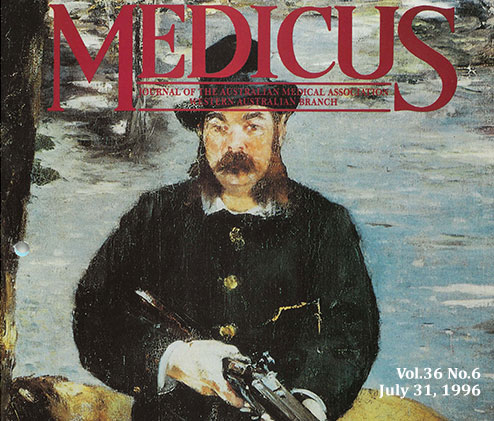

Blog

FLASHBACK FRIDAY: General Practice Issues: How you can put a stop to bulk billing – July 1996
Friday July 30, 2021
Bulk billing is leading to the demise of general practice because it is allowing the Government to set the fees. Quality is being sacrificed in order to maintain profitability. If we reduce the quality the Government will act to bypass us, as will patients by attending alternative health professionals.
Eight years ago, I watched my brother start a podiatry practice. He charged all his patients. Some had insurance, some didn’t. It took him two years to become fully booked. He now employs another podiatrist. He is very fussy and gets good service, people keep coming back and they pay for it.
Enter General Practice. We have been pro viding a good service and not charging about 50 per cent of patients. Two years ago, I decided to introduce the concept of a fee, based on the gap. I set this at $7 (short, medium, or long) with the option of a larger gap if warranted.
Last year we increased the gap to $8. Nobody flinched. We were now only $3 to $4 below a fair fee, in our opinion. This year we made the gap $9. No problems. We explain to patients that this fee has a $4 discount on an account fee and that they must pay on the day to avoid paying an extra $4.
 We have only about one patient every second day who doesn’t pay. We explain t Health Care Card holders, they are no longer able to be bulk-billed and that they have to pay $4 (plus a $4 account fee, if applicable). Most pay, although some new patients will not pay and move to a bulk billing clinic.
We have only about one patient every second day who doesn’t pay. We explain t Health Care Card holders, they are no longer able to be bulk-billed and that they have to pay $4 (plus a $4 account fee, if applicable). Most pay, although some new patients will not pay and move to a bulk billing clinic.
We still bulk-bill full-time university students, but this will continue only for three to four years, therefore every patient will, at some time, contribute. If there were no bulk killing clinics, everybody would pay $4, but at the moment there is still a choice.
Initially, we had trouble with Medicare cheques. However, our outstanding debts have been reduced by $17,000 over one year since we started asking for a payment.
We send reminder accounts every three months to collect the Medicare cheques which are outstanding. These as stamped as follows if the patient has already paid the gap (which is usually the case).
We process the forms by taking them a Medicare office once a week.
Unreliable people are informed that they must settle the gap payments on the day of the appointment, or at the next consultation at the latest.
Each practitioner needs to make a personal decision about whether they can afford to continue treating patients who have outstanding accounts.
Co-payment
I view the introduction of a co-payment as a backward step because the gap will increase. But we could pressure the Government to hold rebates at current levels for billed patients. After all, these represent only 20 per cent of all GP consultations.
It would be fairer if we could get $2 extra for billed patients as a trade-off for a
$4 co-payment/rebate reduction on bulk billed patients.
Other initiatives
The practice also implements
- a steriliser fee for removal of lesions, payable at the time in addition to the gap payment; and
- 16 liquid nitrogen fee (used on set days and times which leads to less wastage).
If you are worried about losing patients, why not have a bulk billing session twice a week and charge at other times. This will limit your poorly paid consults.
Alternatively, you can set times each day that bulk billing is not available, e.g. after 3pm (most workers want to come after this time). Any health care cardholder who has a job will therefore need to pay for a consultation.
Once your times for bulk billing have been filled, patients have the option of waiting for a free time in say two or three You can juggle your fees and times as demand alters. Why see bulk-billed patients at 6pm?
We, as a profession, need to charge a reasonable fee for service. If the rebate drops to 75 per cent, nearly all doctors will need to change their billing practices.
These are my ideas, and they are working for my practice. I would be most- interested in any other ideas which your readers have, and I would gladly encourage the use of any of the above.
BRIAN GILBERT – GP, North Adelaide
This article appeared as a Letter to the Editor in the South Australian AMA Branch journal SA Medical Review, July 1996, and is published here with the kind permission of the author and the SA Branch.

